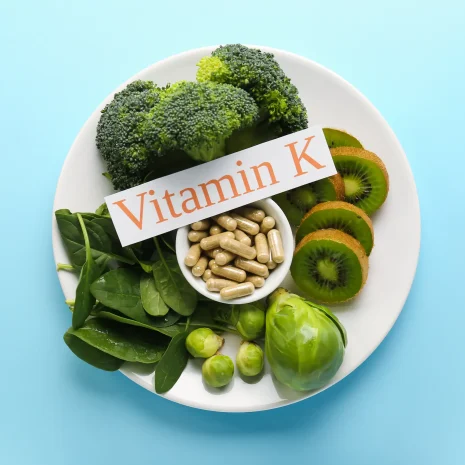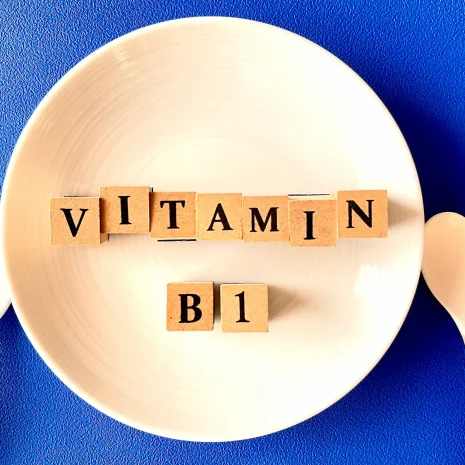Understanding Folic Acid Deficiency: Causes, Symptoms, and Nutritional Solutions
What is folic acid?
Folic acid, also known as vitamin B9, is a water-soluble vitamin essential for human health. It plays a critical role in various metabolic functions, especially in cell growth, repair and functionality. Folic acid is particularly vital for the proper replication of genetic material during DNA synthesis, the production of red blood cells and the healthy functioning of the nervous system.
A deficiency in folic acid can lead to serious health problems, making it important to understand its significance and the factors that can contribute to its deficiency.
What is Folic Acid Deficiency?
Folic acid deficiency occurs when the body does not receive sufficient amounts of this vitamin to carry out its essential functions. This deficiency can arise from various factors, including inadequate dietary intake, alcohol consumption, pregnancy-related needs, digestive disorders and certain medications. Recognising and addressing folic acid deficiency is crucial for maintaining optimal health and preventing related complications.
What causes a folic acid deficiency?
Several factors can contribute to folic acid deficiency, including:
- Inadequate Nutrition: A lack of consumption of folic acid-rich foods can lead to deficiency.A healthy, balanced diet is key to ensure you get all the vitamins and minerals your body needs.
- Alcohol Consumption: Excessive alcohol intake can impair the absorption and utilisation of folic acid in the body, contributing to deficiencies.
- Pregnancy: The requirement for folic acid significantly increases during pregnancy for foetal development. Inadequate intake can heighten the risk of serious birth defects, including neural tube defects such as spina bifida.
- Medication Use: Certain medications, particularly anticonvulsants used to manage epilepsy, can reduce folic acid levels. Additionally, medications used in cancer treatment or for managing chronic diseases may also contribute to folic acid deficiency.
What are the symptoms of folic acid deficiency?
The symptoms of folic acid deficiency can vary widely and often indicate that the body is struggling to perform essential functions effectively. Common symptoms include:
- Fatigue and Weakness: Insufficient oxygen transport due to reduced red blood cell production can result in chronic tiredness.
- Cognitive Difficulties: Those suffering from a deficiency may experience challenges in concentration and cognitive performance.
- Headaches: Frequent headaches are commonly reported among individuals with low folic acid levels.
- Heart Palpitations: The body may struggle to properly oxygenate, leading to palpitations or rapid heartbeats.
Recognising these symptoms is vital for seeking medical advice. Consulting a healthcare professional for accurate diagnosis, typically through blood tests to assess folate levels, is recommended.
Health Risks Associated with Folic Acid Deficiency
Folic acid deficiency can lead to several serious health implications, including:
- Folic Acid Deficiency Anaemia: This condition results from inadequate red blood cell production, leading to symptoms such as fatigue, pallor and weakness.
- Increased Risk of Birth Defects: A lack of folic acid during pregnancy can significantly raise the risk of serious birth defects, particularly neural tube defects like spina bifida.
- Mental Health Issues: Deficiencies may increase susceptibility to mood disorders, including depression and anxiety.
How to treat folic acid deficiency?
The treatment for folic acid deficiency typically involves dietary changes and supplementation. Key strategies include:
- Increased Intake of Folate-Rich Foods: Regularly consuming foods such as leafy greens, legumes, citrus fruits and whole grains is vital for preventing or addressing deficiencies.
- Folic Acid Supplements: For individuals planning to conceive or already pregnant, folic acid supplements are crucial for reducing the risk of birth defects. The typical recommendation is to take between 400-800 micrograms of folic acid daily, depending on individual health needs and circumstances.
- Regular Medical Check-Ups: Ongoing consultations with healthcare providers can facilitate proper monitoring of folic acid levels and help ensure the necessary dietary adjustments are made.
Which foods contain folic acid?
Incorporating folic acid-rich foods into your diet is key to maintaining adequate levels of this important vitamin. Here are some excellent sources:
- Leafy Greens: Spinach, kale and other dark leafy vegetables are rich in folic acid.
- Legumes: Lentils and chickpeas provide significant amounts of folate.
- Citrus Fruits: Oranges and grapefruits offer not only vitamin C but also a healthy dose of folate.
- Whole Grains: Foods such as whole wheat bread and oatmeal are beneficial for folate intake.
- Animal Products: Sources like liver, eggs and dairy products also contribute to folate levels.
If you can’t get enough folic acid from your diet for whatever reason, folic acid supplements can help to ensure you stay healthy and maintain the appropriate levels.
Prioritising Folic Acid for Better Health
In conclusion, folic acid is essential for several vital bodily functions, particularly during periods of growth and development such as pregnancy. Awareness of the causes and symptoms of folic acid deficiency, alongside proactive dietary choices and supplementation when necessary, can significantly enhance well-being.
While multivitamins can offer valuable support for overall health, it is essential to recognize that a balanced diet should remain the cornerstone of nutritional well-being. Multivitamins are intended to be a complementary measure and should not be considered a substitute for a diverse and nutritious food intake.
Note: It is strongly advised that individuals consult a healthcare professional prior to initiating any supplement, particularly if they have existing health conditions, are taking prescribed medications, or are pregnant.








